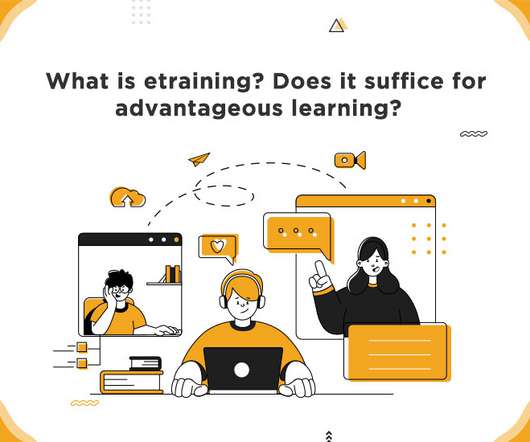What is social learning (and how to adopt it)
Docebo
JULY 8, 2021
While there remains a need for formal training environments to meet specific learning outcomes, the necessity for organizations to leverage platforms that enable social and informal learning, where learners network, share, collaborate, and exchange ideas to solve problems, is paramount. This is Bandura’s social learning theory.
























Let's personalize your content